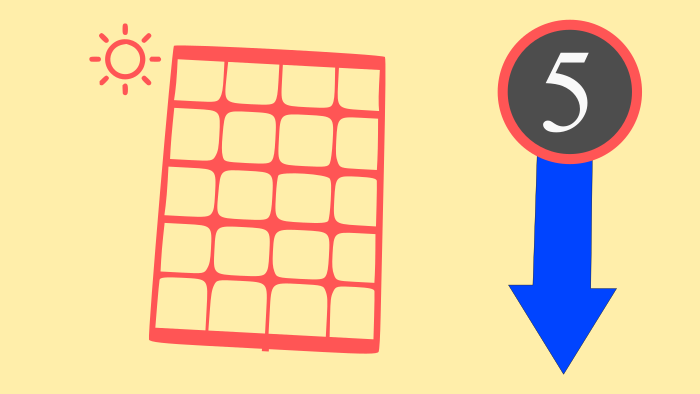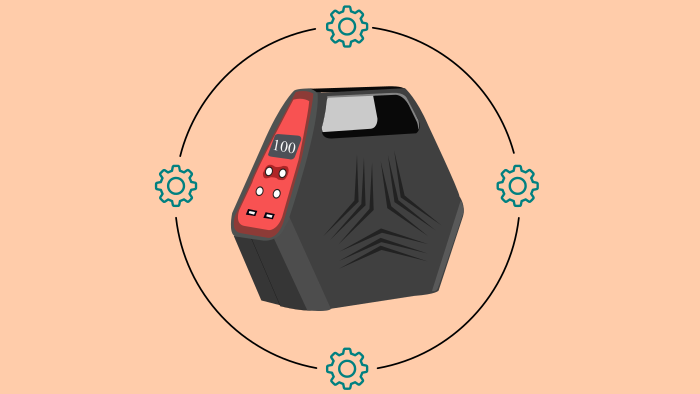When power outages occur, a generator can come in handy, providing electricity to keep essential appliances running. However, there have been concerns about the safety of using generators with refrigerators, and whether or not they can damage these appliances. In this article, we will explore the relationship between generators and refrigerators, and answer the question: can a generator damage a refrigerator?
Introduction
Power outages can occur at any time, and it’s always important to have a backup plan to ensure that your essential appliances keep running. A generator is one of the most popular backup options, but there have been concerns about whether it can damage a refrigerator or not. In this article, we will explore the relationship between generators and refrigerators, and provide insights into how to keep your appliances safe when using a generator.
How does a refrigerator work?
Before we dive into the relationship between generators and refrigerators, it’s essential to understand how a refrigerator works. A refrigerator is an essential appliance that keeps food and drinks fresh by lowering their temperature. It operates by circulating refrigerant through a series of coils and compressors, which removes heat from the interior of the refrigerator and transfers it outside.
How does a generator work?
A generator is a machine that converts mechanical energy into electrical energy. It works by using an engine that is connected to an alternator, which produces electricity. Generators are typically powered by gasoline, diesel, or natural gas.
Can a generator damage a refrigerator?
The simple answer is yes, a generator can damage a refrigerator, but not directly. When a generator is used to power a refrigerator, there is a risk of damage due to fluctuations in voltage and frequency. Fluctuations in voltage and frequency can cause electrical surges that can damage the compressor of the refrigerator.
Factors that can cause damage to a refrigerator when using a generator
There are several factors that can cause damage to a refrigerator when using a generator:
Voltage Fluctuations
Voltage fluctuations can occur when the generator is not providing a consistent supply of electricity. When the voltage fluctuates, it can cause electrical surges that can damage the compressor of the refrigerator.
Frequency Fluctuations
Frequency fluctuations can also cause damage to the compressor of the refrigerator. A generator that is not providing a consistent frequency can cause the compressor to work harder, leading to premature failure.
Overloading the generator
Overloading the generator can cause the voltage to fluctuate, which can damage the compressor of the refrigerator. It’s essential to make sure that the generator is not overloaded, and the wattage is appropriate for the appliances that you are powering.
Not using a surge protector
A surge protector is an essential accessory when using a generator to power appliances. It protects against electrical surges that can damage the compressor of the refrigerator.
How to prevent damage to your refrigerator when using a generator
To prevent damage to your refrigerator when using a generator, follow these tips:
Buy a generator with a voltage regulator
Generators with a voltage regulator ensure that the voltage remains consistent, which prevents electrical surges that can damage the compressor
Use a generator with a consistent frequency
Generators with a consistent frequency are essential to prevent damage to the compressor of the refrigerator. Make sure that the generator you are using has a stable frequency to avoid fluctuations.
Avoid overloading the generator
Overloading the generator can cause voltage fluctuations that can damage the compressor of the refrigerator. Make sure to use a generator with the appropriate wattage for the appliances you are powering.
Use a surge protector
A surge protector is an essential accessory to protect appliances from electrical surges. When using a generator to power your refrigerator, always use a surge protector to prevent damage.
How to properly connect a generator to your refrigerator
Connecting a generator to your refrigerator requires careful attention to detail. Here’s how to do it correctly:
Turn off and unplug the refrigerator
Before connecting the generator to your refrigerator, turn off and unplug the refrigerator from the wall outlet.
Connect the generator to the transfer switch
The transfer switch is a device that connects the generator to the electrical system of your home. Connect the generator to the transfer switch using a suitable cable.
Connect the refrigerator to the transfer switch
Connect the refrigerator to the transfer switch using a suitable cable. Make sure that the cable is long enough to allow for easy movement of the refrigerator.
Turn on the generator
Once the generator is connected to the transfer switch and the refrigerator, turn on the generator. Wait for a few minutes for the generator to stabilize before turning on the refrigerator.
Turn on the refrigerator
Once the generator is stabilized, turn on the refrigerator.
Can a refrigerator damage a generator?
Refrigerators typically do not cause damage to generators. However, an overloaded refrigerator can cause the generator to overheat, leading to damage.
Conclusion
In conclusion, a generator can damage a refrigerator if not used correctly. Fluctuations in voltage and frequency, overloading, and not using a surge protector can cause damage to the compressor of the refrigerator. To prevent damage, use a generator with a voltage regulator and a consistent frequency, avoid overloading, and use a surge protector. Properly connecting the generator to the transfer switch and refrigerator is also crucial to prevent damage.
FAQs
- Can I use a generator to power my refrigerator during a power outage? Yes, you can use a generator to power your refrigerator during a power outage.
- Can a generator damage other appliances besides a refrigerator? Yes, a generator can damage other appliances besides a refrigerator if not used correctly.
- How do I know if my generator is overloaded? If your generator is overloaded, it will shut down automatically. Check the wattage of the appliances you are powering to avoid overloading.
- Can a surge protector protect against all electrical surges? No, a surge protector cannot protect against all electrical surges. However, it can protect against most of them.
- Can I connect my refrigerator directly to the generator? No, it is not recommended to connect your refrigerator directly to the generator. Use a transfer switch to connect the generator to the electrical system of your home.


